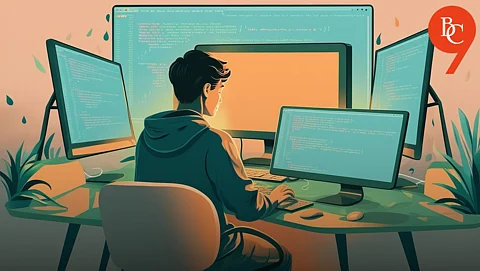

Move over knitting, gardening, and home brewing: there’s a new DIY trend in town, and it’s powered by code. ‘Vibe coding’ a playful, creative approach to programming has taken the digital world by storm, inspiring a generation of makers to blend music, art, and technology in deeply personal ways. This movement is democratizing coding, turning it into a tool for self-expression and community connection.
At its core, ‘vibe coding’ is about using simple programming tools to create digital experiences that reflect your mood, personality, or interests. Whether it’s generating custom playlists, building interactive art, or designing mood-based lighting for your room, vibe coding encourages experimentation and fun over technical perfection.
Unlike traditional coding, which often focuses on solving business problems or building complex applications, vibe coding is about capturing a feeling a “vibe” and translating it into something digital. It’s the intersection of code, creativity, and everyday life.
Several factors have fueled the rise of vibe coding:
Accessibility: Platforms like Scratch, p5.js, and Sonic Pi make it easy for beginners to start coding music, visuals, or games without deep technical knowledge.
Personalization: People crave unique, tailored experiences. Vibe coding lets anyone design digital art, playlists, or even home automation scripts that match their mood or style.
Community: Online forums, Discord servers, and social media groups have sprung up where “vibe coders” share projects, offer feedback, and inspire each other.
Mental Wellness: Many find the process relaxing and therapeutic, similar to traditional DIY crafts. Coding your own ambient soundtrack or calming visualizer can be a form of digital self-care.
Music Generation: Users are writing code to create generative music that adapts to their activity—studying, relaxing, or exercising.
Visual Art: Interactive digital canvases respond to touch, sound, or even weather data, allowing creators to “paint” with code.
Smart Home Projects: Vibe coders are automating their lights to change color based on the time of day, weather, or even their Spotify playlist.
Online Events: Virtual “vibe rooms” let friends hang out in custom-coded digital spaces, complete with mood lighting, shared playlists, and interactive games.
As technology becomes more integrated into daily life, the line between “techie” and “creative” is blurring. Vibe coding is proof that anyone can use code to make something beautiful, useful, or just plain fun. It’s a trend that not only empowers individuals but also builds communities around shared creativity.
